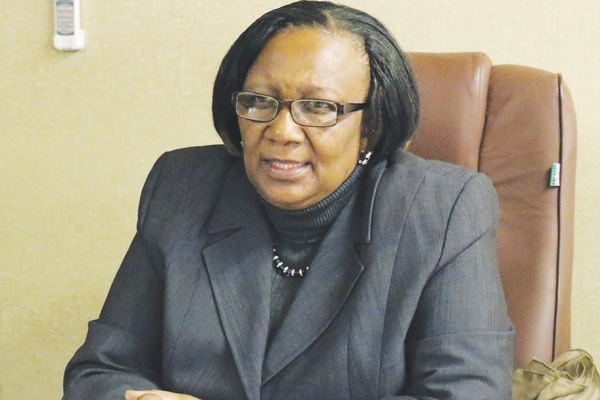
Public Service, Labour and Social Welfare minister Priscah Mupfumira was recently forced to reinstate thousands of youths who were retrenched, as President Robert Mugabe pulled another trick to curry favour with the electorate ahead of next year’s general elections.
BY NDAMU SANDU

At a youth interface rally in Chinhoyi, Mugabe appeared shocked when told that about 2 000 youths had been retrenched and immediately ordered Mupfumira and her Finance counterpart Patrick Chinamasa to “stop it” as he was not consulted.
Analysts were unanimous last week that Mugabe’s intervention was a clear testimony that government was not genuine about or interested in embarking on economic reforms as recommended by the global financial institutions.
Former Finance minister Tendai Biti said the u-turn on retrenchments “is proof that they cannot reform”.
“When I was Finance minister, we were paying 236 000 civil servants. Now they are paying 550 000, half of those are ghost workers,” he said.
The bulk of government’s revenue has been going towards paying salaries, crowding out allocations to capital expenditure in the process
Government’s employment costs have remained unsustainably high. In 2016 the employment cost bill was $3,21 billion, accounting for 91,7% of total national revenue.
- Chamisa under fire over US$120K donation
- Mavhunga puts DeMbare into Chibuku quarterfinals
- Pension funds bet on Cabora Bassa oilfields
- Councils defy govt fire tender directive
Keep Reading
Analysts say the easiest route to cut the employment costs is to remove the ghost workers from the payroll.
The policy reversal comes at a time Chinamasa and central bank governor John Mangudya have been preaching about reforms, with international financiers such as the World Bank and International Monetary Fund (IMF) seemingly charmed.
In a letter of intent to IMF managing director Christine Lagarde, Zimbabwe promised to lower the wage bill to 50% of total expenditure by 2019.
“A crucial element of our fiscal policy is a strategy that lowers the combined wage bill of the central government and grant-aided institutions to 50% of total expenditure by 2019. To achieve this reduction, we will work on the size and remuneration of the public service. Based on current economic growth and expenditure forecasts, this will mean that the employment and salary freeze will have to remain in place for at least the next three years,” it said in a letter signed by Chinamasa and central bank governor Mangudya.
In a 2016 staff report to the Article IV consultation and the third review of the staff monitored programme, the IMF said the high employment costs in Zimbabwe at 77% of expenditure undermined fiscal sustainability, and “place a significant financing burden on the economy, and crowd out other productive expenditures.
“The growth in employment costs from 51% of spending in 2010 has been the result of both higher wages and employment growth. Wage growth has mainly been driven by the need to increase public service real wages that were eroded by hyperinflation during the 2000’s” IMF said.
It said the increase in employment numbers was also a result of an expansion in service delivery (for example introduction of an early childhood development programme), and a generalised expansion of the role of the State in the economy.
“Between 2010 and 2013, the expansion in employment costs was underpinned by expectations of continued economic growth, and the unanticipated slowdown in growth and inflation has served to exacerbate the problem,” the IMF said.
Does it mean that Mupfumira made a decision without obtaining Cabinet authority?
“Cabinet decisions are there but he [Mugabe] is too old to remember them,” Biti said.
Economist, Prosper Chitambara said the reversal of the retrenchment has to be looked at in light of the upcoming elections.
“You can’t afford to be retrenching people when you have an election coming up in a year’s time,” he said.
Chitambara said reforms were “a bitter pill to swallow” and those in power may not be comfortable with.
Mugabe is a master of when it comes to belittling his lieutenants in public.
In 2002, then Finance minister Simba Makoni was condemned after he called for the devaluation of the banished Zimbabwean dollar.
In 2006, then Finance minister Herbert Murerwa was rapped for his bookish economics, after he had called for an end to the quasi fiscal activities that were blamed for accelerating hyperinflation.
“We are under sanctions and there is no room for the type of bookish economics we have at the Ministry of Finance,” Mugabe said then.
Last year, Mugabe overturned Chinamasa’s plans to cut salaries and suspend bonuses for civil servants.











